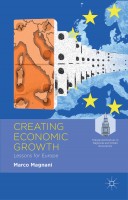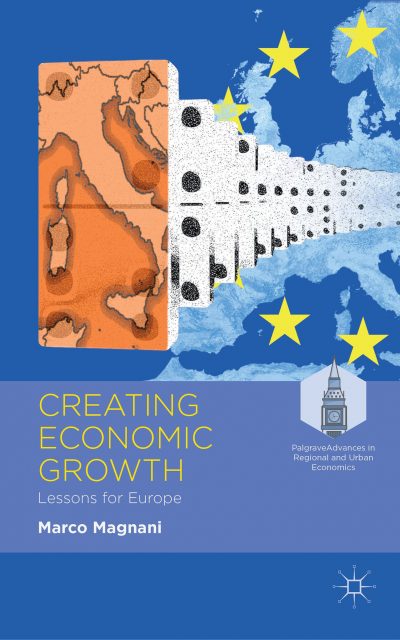 Author: Marco Magnani
Author: Marco Magnani
Publisher: Palgrave Macmillan – 295 pages
Book Review by: Paiso Jamakar
Economic news reports coming from the European Union cite statistics of low growth, no growth or negative growth of the gross domestic products of some members of this group. Other reports mention high rates of unemployment in some European countries.
Other stories in the media cite very high debt levels and even possible defaults by some countries. This is attributed to the constant rise in government employees’ wages on the one hand, and declining revenues on the other hand, due to the economic slowdown.
But none of these reports strike you as much as what returning visitors tell you and show you in pictures what they saw: entire families sitting on streets because both parents who have lost their jobs, homes, and all savings. These images hit you on your gut.
For example, on this website We Are Anonymous (http://anonhq.com/spain-invisible-reality-homeless-people/) read a Nov 30, 2014 story entitled Spain and Its Invisible Reality of Homeless People that cites the following horrendous statistics:
- Nearly 30 percent of all children in Spain live in poverty
- Spain’s unemployment rate is nearly a quarter of the population or one in four people
- Among those who are employed, 13 percent are classified as working poor
- In the first six months of 2014 alone, over 37,000 people were evicted from their homes
- A staggering 3.4 million homes currently sit vacant: 14 percent of houses in Spain
- There have been 569,000 foreclosures in Spain since 2007
- Many of Spain’s homeless population sleep “rough” on the streets, regardless of weather or safety.
In this book Marco Magnani writes that in Europe, “national-level policymaking has slowed, stalled, or failed when it comes to critical actions in spurring economic growth.” He asserts that there are solutions to combat the “feelings of economic malaise that taint the next generation’s dreams of prosperity.”
He outlines a six-point “comeback strategy” that business leaders, citizen catalysts, elected officials in cities, towns and provinces, should take with these actions: build human and civic capital; unleash entrepreneurial creativity; spur new innovation; stimulate cultural creativity; leverage cultural diversity; and champion social mobility.
Will these actions work? The author offers theoretical and empirical evidence to prove that these measures will indeed work.
Each of these actions is taken up in a whole chapter. The contents if this book consists of an Introduction, which is a call to action, and six chapters that provide details of Magnani’s blueprint to revive Europe economically:
Introduction: Rising to the Occasion
- Building Assets of Local Development
- Unleash and Stimulate Entrepreneurial Creativity
- Foster Innovation and Research
- Leverage Cultural Resources and Creativity
- Make the Most of Cultural Diversity
- Champion Social Mobility
This book is an effort by Magnani to contribute to change for better economic conditions in Europe. Magnani confesses that when he was growing up in Italy, he, like everyone else around him, would blame others for the poor conditions around them, and the consequent problems they faced; He writes that criticizing and playing victim became a national sport.
He realized later that without political involvement and collective public action, nothing will change. This book is his unique call to action to all those who live and work in the European Union, but particularly to those in positions of influence and power. A good book!
Marco Magnani, formerly an investment banker for nearly 20 years with JP Morgan in New York and Mediobanca in Milan, is a senior fellow at Harvard University’s Kennedy School of Government, where he leads research on European economic renewal, including a project entitled Italy 2030.
He is a visiting fellow at the School of Advanced and International Studies at Johns Hopkins University in Washington, DC. He holds a degree in Economics from the University of Rome, and an MBA from Columbia University.
He is a member of the Global Agenda Council on Banking and Capital Markets. In 2010, he was appointed Young Global Leader of the World Economic Forum in Davos, Switzerland.
He is a member of the following think tanks: The Aspen Institute, Chatham House, the Institute for International Affairs, The Economic Club of New York, and Young Leaders Council for the United States and Italy.
An American Field Service (AFS) scholar when he was 16, he is now chairman of AFS Italy (Intercultura), and a member of the board of trustees of AFS International.







